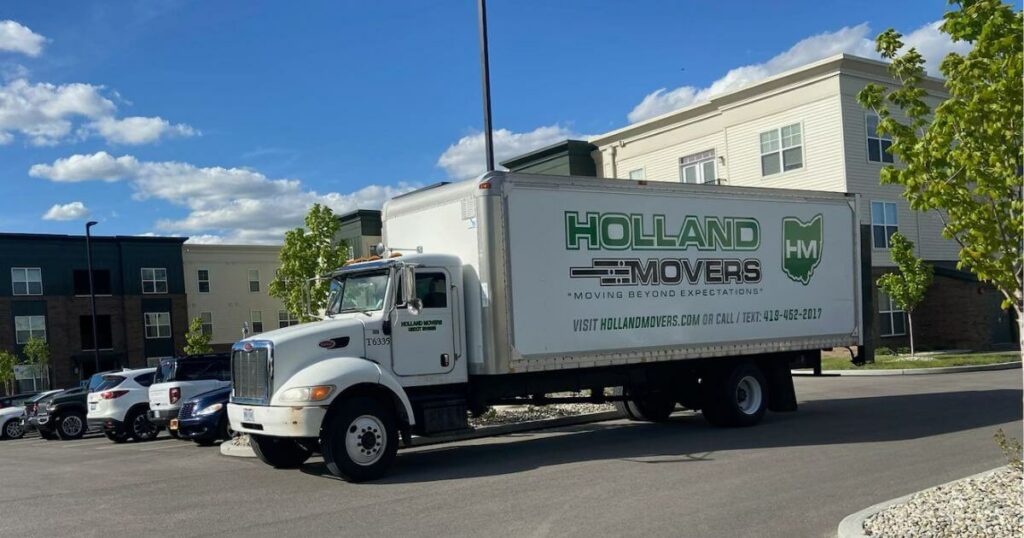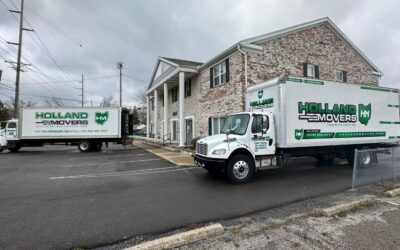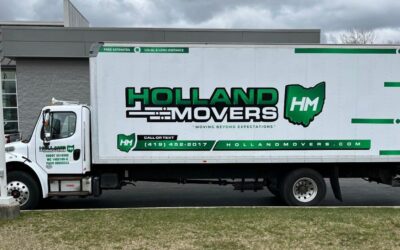
Commercial Moving Services Explained
In the dynamic world of business, the need for efficiency and seamless transitions is paramount, especially during a relocation. This is where the role of commercial moving services, like those provided by Holland Movers, becomes crucial. These services are sought after by businesses, large-scale organizations, and offices planning a move. The objective? To ensure a smooth transition, secure handling of valuable assets, and minimal disruption to regular operations. It’s essential to grasp the concept and importance of commercial moving services to select the one that best fits your needs. These services offer a wide range of functionalities, from operational aspects to handling specialized equipment or sensitive documents, all designed to provide a stress-free moving experience.
Commercial Moving Services Defined
So, what exactly are commercial moving services? They are comprehensive solutions designed to assist businesses in changing their location. Unlike residential moving, which mainly deals with transporting household items, commercial moving is a more intricate process. It covers the relocation of various business entities, be it offices, stores, workshops, or large corporations.
The process is extensive, including packing up office equipment, files, furniture, and other essentials, transporting them safely to the new location, and setting everything up according to the business’s needs. It’s not just about moving physical objects; it also involves careful handling of sensitive or confidential data and machinery, ensuring their secure transition.
These services are typically provided by professional moving companies specializing in commercial moves. They possess the necessary resources, knowledge, and skills to navigate the diverse challenges that can arise during a comprehensive commercial relocation. For instance, imagine moving a hospital with its specialized equipment and patient records. It requires a level of expertise that only a seasoned commercial moving service can provide.
Significance of Commercial Moving Services
The role of commercial moving services in a business relocation cannot be overstated. They serve as a lifeline, reducing the overwhelming stress associated with shifting an entire business from one place to another. This not only conserves valuable time and resources but also allows the company to maintain its focus on core business operations.
Commercial moving services, with their wealth of expertise and resources, are instrumental in ensuring a smooth transition with minimal downtime. This is crucial to sustain productivity levels and prevent any potential revenue loss due to operational interruptions.
Moreover, these professionals are adept at handling delicate items and sensitive information, guaranteeing safe and secure transportation. They offer a comprehensive range of services, including space planning, furniture installations, and IT relocation services, effectively addressing all facets of a commercial move.
Adhering to a well-structured, timeline-based approach, these services ensure a timely move, which is vital for swift resumption of business operations at the new location.
Key Considerations for Choosing a Commercial Moving Service
Selecting the appropriate commercial moving service is a critical factor in the smooth execution of your move. Entrusting your business assets to an ill-suited company could lead to delays, damage, or loss – consequences that could disrupt your business continuity and negatively affect your profits. Therefore, this decision requires thoughtful deliberation.
When selecting a commercial moving service, businesses should consider several key aspects. These include the moving company’s track record in commercial moving, their adherence to legal requirements such as possessing the necessary license and insurance, the breadth of services they provide, and their reputation as evidenced by reviews and recommendations. Each of these factors is instrumental in ensuring a successful and efficient commercial move.
Experience in Commercial Moving
The depth of experience a commercial moving service possesses can be a game-changer in your relocation process. A company seasoned in the art of commercial moving brings to the table a comprehensive understanding of the complexities that can arise, from safeguarding your valuable business equipment to orchestrating the move to minimize business interruption.
Such a mover, armed with years of experience, can anticipate potential hurdles and promptly offer effective solutions, thereby ensuring a seamless transition. They are adept at crafting a moving plan that is custom-made to cater to your business’s unique requirements, be it the relocation of sensitive electronics, hefty machinery, or confidential paperwork.
A seasoned mover also has a thorough understanding of the regulations and building codes that govern commercial relocations. This knowledge can help avert legal hiccups and ensure adherence to compliance throughout the move.
Furthermore, experienced moving companies typically employ a steady team of skilled professionals, which can expedite the moving process and enhance safety. Thus, the experience of a commercial moving company should be a prime consideration to ensure a smooth and efficient move.
Compliance: License and Insurance
Adherence to regulatory standards is a vital consideration when choosing a commercial moving service. To safeguard your business assets, it’s essential that the moving company you select is both licensed and insured.
A licensed mover operates under the watchful eyes of government agencies and is expected to meet all industry standards. They are bound by stringent rules and regulations concerning the transportation and storage of your business inventory, which could range from office furniture to delicate, high-value equipment.
Conversely, insurance serves as a safety net for your property during transit. In the event of any damage or loss during the move, a fully insured moving company can absorb the cost. Therefore, it’s imperative to understand the scope of a mover’s insurance policy, which could vary from full replacement or repair to the depreciated value of the item.
Engaging with an uninsured or unlicensed mover can result in complex legal challenges if something goes awry during the move. Consequently, it’s crucial to ensure that your chosen commercial moving service possesses a valid license and comprehensive insurance coverage to protect your assets during the transition.
Scope of Services
When selecting a commercial moving service, it’s crucial to evaluate the breadth and depth of their offerings. The right mover should provide a range of services tailored to meet your specific business needs.
For instance, some businesses may only require basic moving services, such as packing, transportation, and unpacking. However, others may need a more comprehensive package that includes dismantling and reassembling furniture, setting up equipment at the new location, or even managing the disposal of unwanted items prior to the move.
Additionally, some movers offer supplementary services like storage solutions. This can be a lifesaver if your new premises aren’t ready when it’s time to leave your current location.
Moreover, if your business involves specialized items like oversized machinery, medical equipment, or IT hardware, it’s crucial to ensure your chosen mover has the necessary equipment and trained personnel to handle these items safely and efficiently.
In short, a thorough understanding of a mover’s service scope is essential to ensure they can meet your unique business needs.
Reputation: Reviews and Recommendations
Assessing the reputation of a commercial moving service is a critical step in your selection process. A company’s reputation can offer valuable insights into their professionalism and service quality.
Online reviews and ratings can provide a glimpse into the experiences of previous customers. Look for recurring themes in these reviews, such as timeliness, care in handling items, responsiveness, and problem-solving abilities. These can offer a clear picture of the company’s operational standards.
It’s important to examine both positive and negative reviews. While positive feedback can highlight a company’s strengths, negative reviews can reveal potential issues, helping you make a well-informed decision.
Personal recommendations can also be a valuable resource. Referrals from trusted business associates or colleagues can provide a reliable gauge of a moving company’s dependability.
In conclusion, a well-reputed moving company is more likely to deliver a seamless, stress-free moving experience for your business.
Planning and Executing a Commercial Move
Securing the ideal commercial moving service is just the beginning. The subsequent steps involve detailed planning and execution, both of which are pivotal to a successful relocation with minimal disruption to your business operations. The planning stage encompasses the formulation of a thorough moving plan. The execution phase, on the other hand, requires a collaborative effort with your chosen moving service to ensure everything proceeds as planned. We will delve deeper into these critical stages in the following sections.
Developing a Moving Plan
A well-structured moving plan is the cornerstone of a successful commercial move. This plan should encompass every phase of your move, from the initial preparations to the final setup of equipment and furniture at your new location.
Begin by compiling an inventory of all items to be relocated. This list should include everything from office furniture and electronics to documents and specialty items. Proper labeling and categorization of items not only facilitate organized packing but also streamline the unpacking and setup process at your new premises.
Next, establish the timeline for your move. Identify an optimal moving date and construct a schedule leading up to this date. This schedule should outline when packing will commence, dates for disconnecting and re-establishing utility services, and preliminary and final clean-up dates.
Assigning roles and tasks to your team is also crucial. Designating a team member to liaise with the moving company can enhance communication and coordination.
Creating a floor plan for your new location is another beneficial step. This plan assists movers in positioning your assets correctly, thereby saving time during setup and reducing business interruption.
Communication is key in this process. Ensure that your moving plan is effectively communicated to all parties involved – from your employees to the moving company. By incorporating these steps, you can create a comprehensive moving plan that facilitates a smooth transition to your new commercial space.
Collaborating with Your Chosen Moving Service
After finalizing your moving plan and choosing a commercial moving service, the next crucial step is to foster a productive partnership with your movers. This collaboration is the cornerstone of a smooth transition. Here’s how you can facilitate this:
Begin by establishing clear communication channels. Share your comprehensive moving plan, detailing the inventory, timeline, special handling instructions, and the layout of your new premises. This transparency allows the movers to customize their strategy to your unique needs.
Ensure that you maintain this communication throughout the move. Regular updates from the moving service will keep you informed about the progress, provide opportunities for necessary adjustments, and ensure any unexpected issues are promptly addressed.
Moreover, work together on a contingency plan. Even the most meticulously planned moves can encounter unforeseen challenges. Having a backup plan in place with your movers can mitigate these hiccups, ensuring a smoother transition.
Through effective collaboration, you can build a partnership with your moving service that minimizes business disruption and guarantees a successful relocation.
Post-Move Phase
Once the physical move is complete, the post-move phase begins. This stage involves settling into your new space and evaluating the performance of your moving service. Paying close attention during this phase can help address any issues that may arise as you settle in and can provide valuable insights for future relocations. The following sections will delve into the key elements of the post-move phase.
Settling into the New Location
Transitioning into your new commercial space is a process that requires meticulous organization and management. Start by adhering to the floor plan you devised during the planning phase, positioning items such as office equipment, furniture, and other business-specific items in their designated spots.
Once everything is arranged, it’s crucial to verify the functionality of all equipment and utilities. This includes testing your IT infrastructure, inspecting the plumbing and electrical systems, and addressing any issues promptly to ensure business operations can resume without delay.
Take the time to conduct a comprehensive walkthrough of the new premises with your team. Acquaint them with the layout, emergency exit routes, and the locations of essential facilities like restrooms and break rooms. A seamless transition for your employees is vital for maintaining productivity during and after the move.
Don’t forget to update your address on all relevant platforms – from your company website and online directories to supplier databases and marketing materials. Keep your clients and business partners informed about your new location to maintain uninterrupted communication and business operations.
While settling into your new commercial location may require some time and minor adjustments, careful planning and execution can ensure a smooth transition, minimizing any disruption to your daily operations.
Assessing and Reviewing the Moving Service
After settling into your new location and resuming normal operations, it’s essential to assess and review the moving service you employed. This reflection serves a dual purpose: it provides valuable feedback for the moving company and allows you to glean insights for future reference.
Begin by evaluating whether the moving company fulfilled their commitments. Did the move conclude within the agreed timeframe? Did your items arrive undamaged and intact? Was the moving team professional and responsive to your needs?
Consider any obstacles encountered during the move and how the moving service addressed them. Evaluate whether additional services like packing or assembly were performed to your satisfaction.
Gather feedback from your team as their experiences can offer a comprehensive perspective of the moving process.
Once you’ve compiled this feedback, share it with the moving company. Constructive feedback can aid them in refining their services. Remember to also acknowledge the aspects that were handled well.
Lastly, consider sharing your experience by leaving an online review for the moving service. This not only helps the company enhance their reputation but also guides other businesses in their search for reliable commercial moving services.


